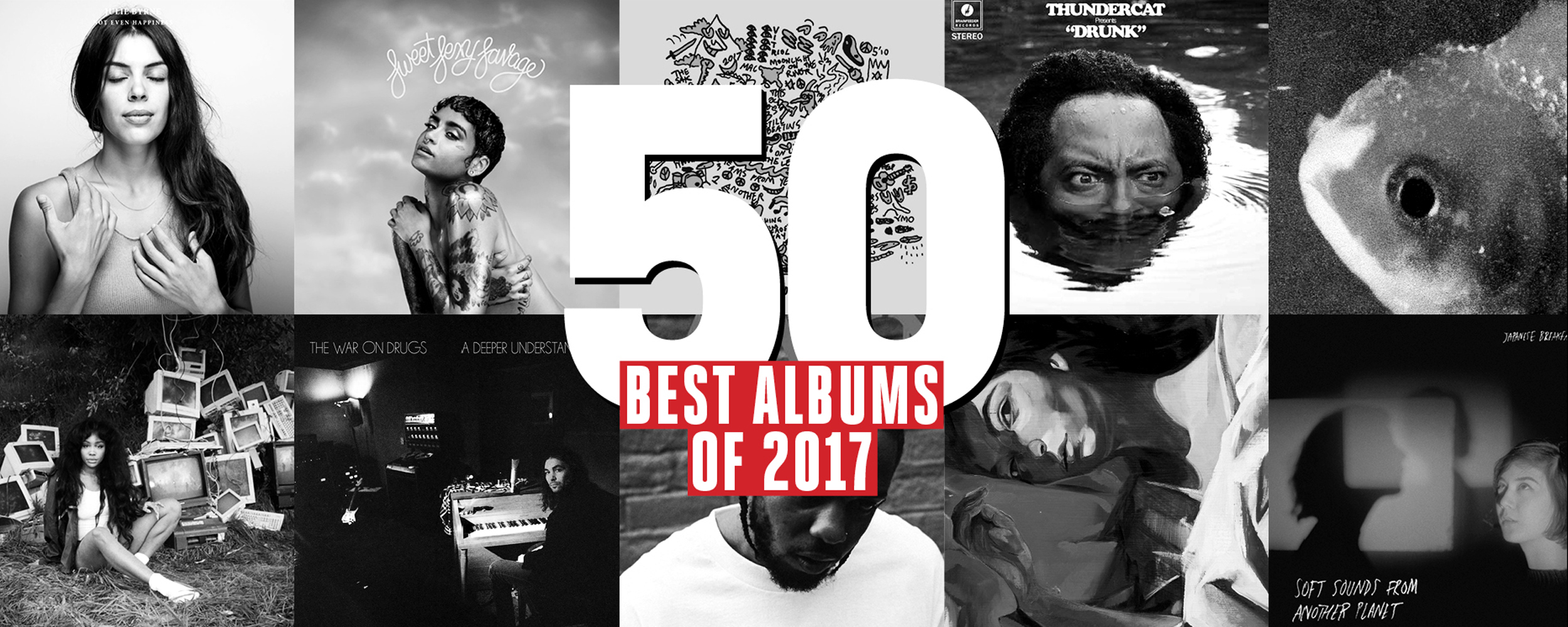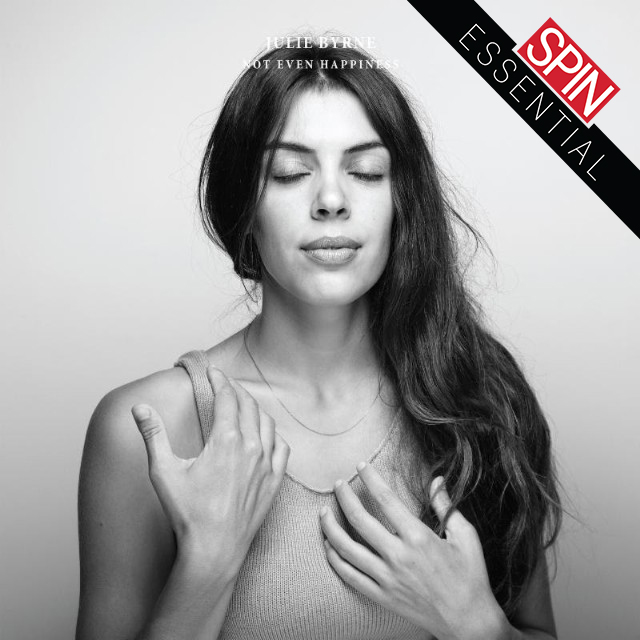Sometimes, simply pairing the right voice with the right reverb can create a song’s power. There have been endless notable examples since the effect came to prominence in 1950s pop music—at first, there were the evocative echo chambers of Johnnie Ray’s “Cry,” Elvis’ “That’s Alright (Mama),” and Roy Orbison’s “In Dreams.” Over half-a-century later, indie-pop fans got the dreamy discographies of Beach House and Lana del Rey—and now, they have every song on NYC-dwelling singer/songwriter Julie Byrne’s plaintive sophomore album Not Even Happiness.
A frequent misconception is that any music that courts a “folk”-related designation is, by default, unadorned: a document of raw performance. In the indie-rock-adjacent world of “folk,” at least, that’s often a lie: The intimate quality of the recording is an aural illusion carefully created through ProTools treatment. Not Even Happiness is primarily a duet between solo voice and acoustic guitar, but it takes place beneath a canopy of mountainous, lovingly-shaped reverb. The effect blurs the sharper edges of the strings, winds, and synth blots that lurk low in the mix to build tension in Byrne’s couple-chord songs; it sometimes renders her lyrics, which read like fragments from journal entries pieced together at random, unintelligible.
But swept up by this sheen, Byrne’s voice–at turns as husky as Victoria LeGrand’s, as agile and lilting as Julia Holter’s–has a corporeally pleasing effect. (Listen on good headphones, and you may feel a warm, ASMR-like sensation creep across your scalp.) The beauty of the vocal texture often supersedes Byrne’s meditations on relationships just beginning or gently unraveling, and how alternately frustrating and invigorating any private search for cosmic meaning can be. At the cathartic moments when her lyrics do drift to the forefront, Byrne often descends to booming low notes, conjuring Leonard Cohen’s phrasing in both word and melody ”I traveled the country and I carried no key,” she solemnly declaims in the middle of “Sleepwalker,” the album’s highlight; later, on “All the Land Glimmered,” she dwells in her rich contralto range for most of the song, while discussing a search for the divine: “I was in my heart and I answered me.”
Not Even Happiness is full of unplaceable but familiar gestures that seem like they could have been paraphrased from any number of past bittersweet love ballads, but the album is propelled by enough stylistic variation to hold even a relatively impatient listener’s attention. It alternates dreamy pastorals like “Follow Your Voice” and “Natural Blue,” with the ragtime fingerpicking of “Sleepwalker” and “Morning Dove,” and sleepy Americana in the vein of “Melting Grid.” The shifts in musical affect seem to evoke the cross-country tour referenced on the album: “passing from Colorado, Wyoming, Helena into the Evergreen” and “southwestern towns/I’d been in before.” Each song is a new vista, but glimpsed through the same car window.
Ultimately, the record’s closer and greatest departure–the electro-orchestral, Enya-reminiscent “I Lived Now as a Singer–distills all the themes of the album into one dreamy, cyclical miniature. She begins with a cryptic kiss-off to a past relationship, then recalls past trips fondly–”how the Catalinas brought me to the West”–but wonders if “travel led [her] anywhere,” really. The final lines of the record pose a question, tabled indefinitely: “At night beneath the universe you walk with me/Can I be ever near the edge of your mystery?” Like Joni Mitchell’s spare 1976 masterpiece Hejira, Not Even Happiness is a lonesome travel album par excellence: a document of transience and half-formed inspiration, reveling in riddles and paradox rather than firm conclusions.





